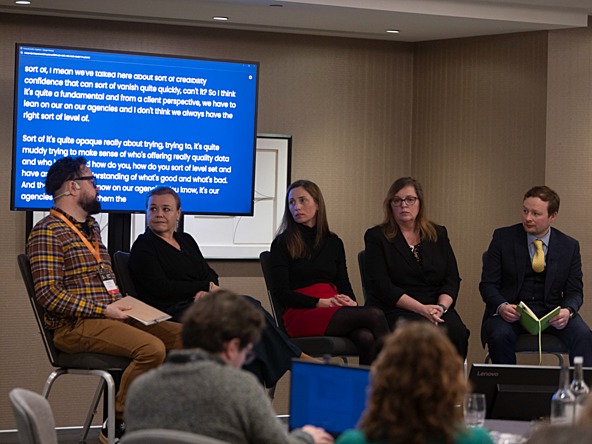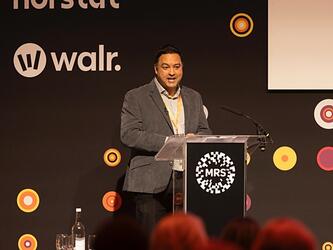Synthetic data not an ‘escape route’ from the data quality crisis

Speaking in a session on tackling the data quality crisis and bolstering trust in research, Debrah Harding, managing director at MRS, said that synthetic data should not be seen as an opportunity for a “race to the bottom on price” that inflames existing concerns around data quality in the market research industry.
“Any good synthetic data is based on excellent primary data – it is a model that continually needs to be invested in,” Harding said. “Synthetic data is actually very expensive, if you’re doing it properly.
“To see synthetic data and AI as a potential escape route from data quality is really quite dangerous, as it is not an escape route. If we are pushing data quality problems and having a rush to the bottom to get cheap synthetic data, you have created a new problem.
“We have a tendency to have a problem, create a solution for it and then the solution becomes the new problem. Often that is because there is a race to the bottom on price.”
Harding also said that the sample buying ecosystem needed simplification to help address the data quality crisis.
“We have created the most complex ecosystem for buying samples. You look at it and think ‘no one would have started at this point’,” she explained.
“There is no quick fix – there is no slow fix either. This is going to be a problem we’re always going to have. AI and synthetic data makes that problem more complicated. The important thing is we are investing in tools and a conversation so we are continually evolving with the challenge, so we can keep addressing [data quality] and so we don’t have a situation where, quite frankly, we just hit the buffers.”
Also appearing on the panel, Melanie Courtright, chief executive at the Insights Association, said that the industry needed to work together to raise data quality standards.
“To solve something this big, it requires everyone,” she said. “We have had some trouble involving some cohorts in the conversation. We need to figure that out over the next six months – we need to figure out how to make the buyers and the brands care enough to make it part of the procurement process.”
Courtright added that while the industry is “a profession of measurement”, it has not historically measured both client confidence and actual quality metrics. She said that a buyer sentiment score has been launched that showed that a third of buyers are not confident in the data they are provided with.
Eight data quality benchmarks have also been rolled out in the US, Courtright added, with plans to launch them worldwide in June. Current data, based on 1.2m records from 30 providers, showed on average 40% of data is being removed from projects.
“We are going to be fine. But the crisis is a lack of confidence that could change client behaviour,” Courtright concluded.
Sebastian Mitchinson, group insight manager at HSBC Group, told the panel that the industry “should be able to fix this”, adding: “Ultimately it is an issue about measuring something and finding a relative point. And who is better to sort that out than a bunch of researchers.”
As a buyer, Mitchinson said that it was important that internal insight teams within brands have information to show that improved data quality is “worth the additional spend”, adding that: “It is an industry issue. Obviously, I would start with the end suppliers, but as a client I think there’s obviously a role [for us].”
Joanna Bygrave, director of quality and security at NIQ Bases, said that while a lot of positive work was underway, pockets of fraud will always remain.
“Data quality will continue to evolve – we will keep need to be doing work in this area,” she said.
“It may seem that nothing has happened, but actually quite a lot is happening, but maybe it is not consistent enough, it is not visible enough, and we need to be doing more to make sure we stay a step ahead.”

We hope you enjoyed this article.
Research Live is published by MRS.
The Market Research Society (MRS) exists to promote and protect the research sector, showcasing how research delivers impact for businesses and government.
Members of MRS enjoy many benefits including tailoured policy guidance, discounts on training and conferences, and access to member-only content.
For example, there's an archive of winning case studies from over a decade of MRS Awards.
Find out more about the benefits of joining MRS here.














0 Comments